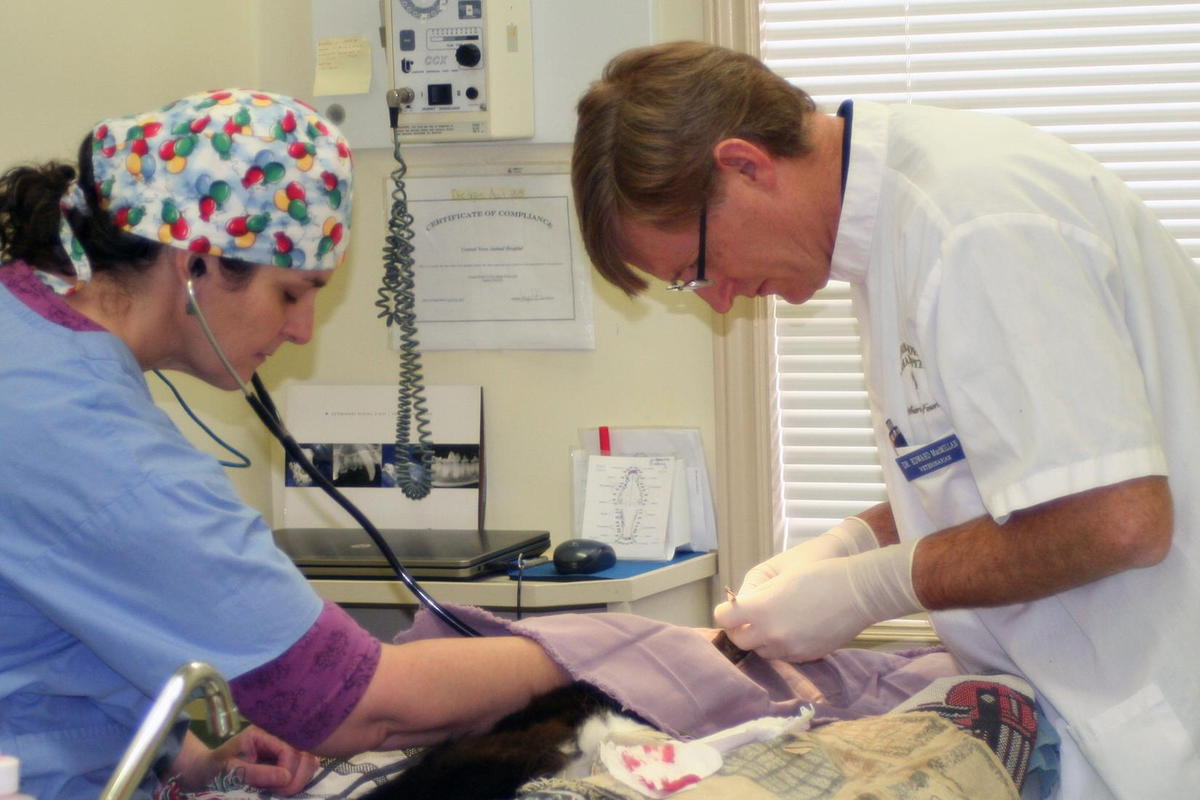Emergencies, On Call and Mental Health
Let’s take a look at how emergency services are provided here in the Truro area…
All veterinary hospitals are required to provide their clients and patients with access to emergency services. In some larger centers, such as Halifax, there are specific 24hr veterinary hospitals or emergency hospitals that are staffed after hours. These facilities allow ‘regular’ vet hospitals to refer their after hours care and emergencies, thus most veterinarians and staff in Halifax never have to be ‘on call’ for emergencies. In smaller towns it is typically not feasible for veterinary hospitals to be staffed 24/7 as the costs associated 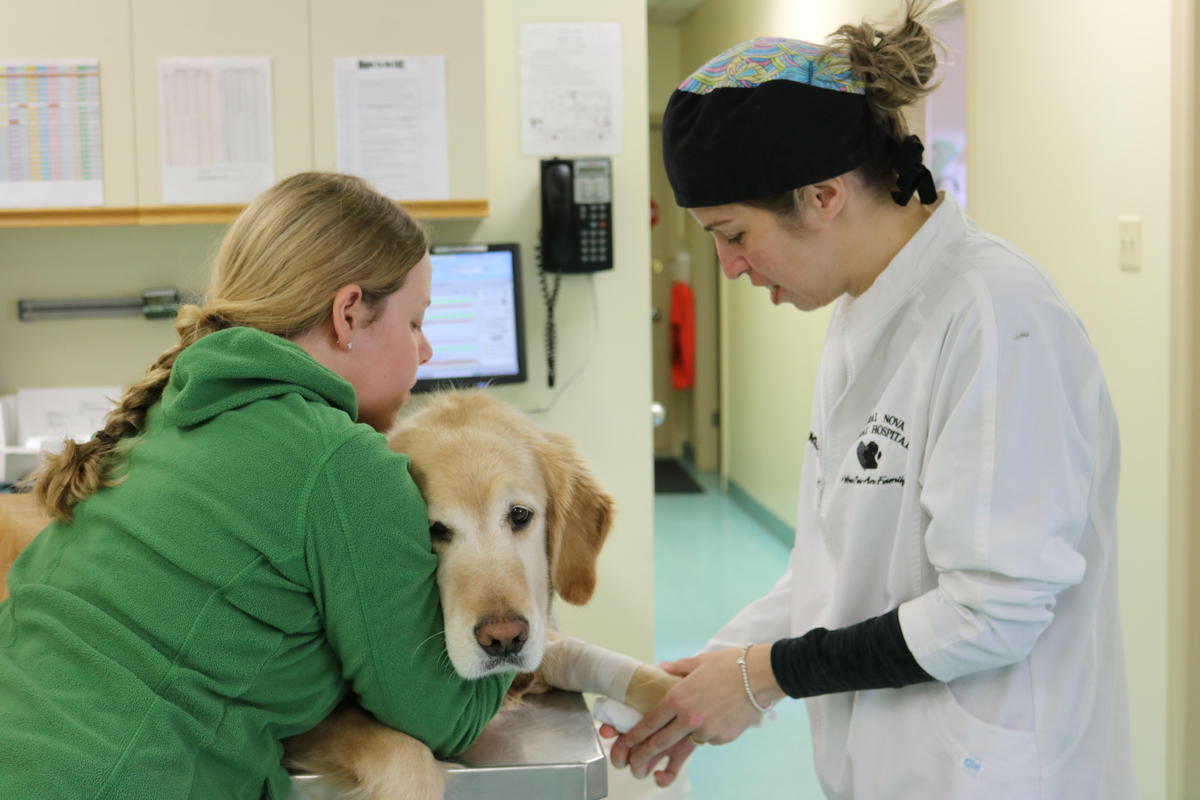 with this (staffing levels, employee wages, electrical bills…) would not be covered by the revenue generated in these hours. This results in veterinarians and staff in smaller towns being ‘on call’ in order to provide care in after hour and emergency situations.
with this (staffing levels, employee wages, electrical bills…) would not be covered by the revenue generated in these hours. This results in veterinarians and staff in smaller towns being ‘on call’ in order to provide care in after hour and emergency situations.
Here in the Truro area the three veterinary hospitals (Central Nova Animal Hospital, Truro Veterinary Hospital and Fundy Veterinarians) have an emergency agreement to provide after hours care. (This pertains to pets only; Fundy Veterinarians has a separate policy in place for their farm animal practice.) In this agreement the on call is rotated between all the staff of all three clinics. Typically one veterinarian and one staff member (RVT or assistant) are on call on any given after hours shift. By sharing on call like this we are each on call less often, which results in improved quality of life and better mental health for your veterinarian and their staff.
What this means to you and your pets is that there is always someone available to call upon if your pet is sick outside of regular office hours. But it also means that if your pet requires after hours care, you may have to go to a different hospital and be seen by a different veterinarian than your regular vet at your regular
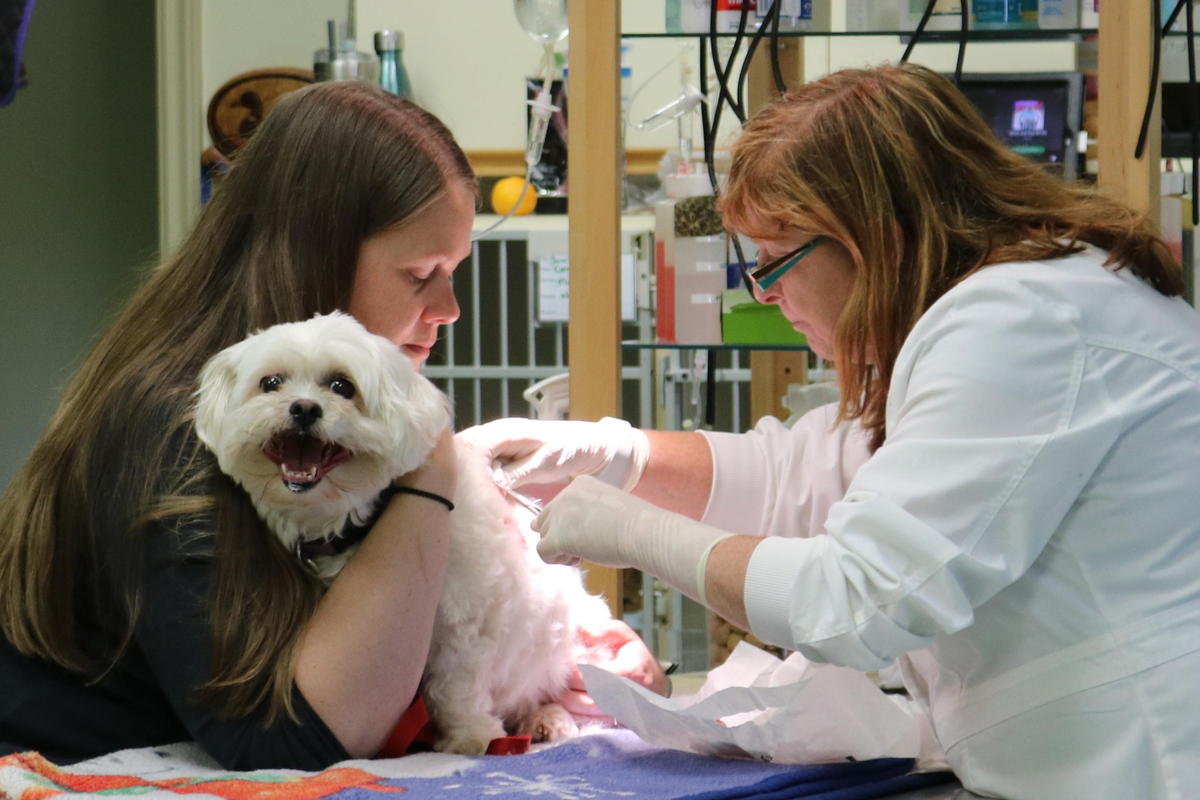
veterinary hospital. (This, of course, is not without precedent: in human medicine we never expect to see our regular GP if we go to the emergency department.)
If you have a sick or injured pet after hours you just need to phone your regular vet’s number. The phone will be answered by an answering service (the same answering service answers all three clinics’ phones) who will take a message and immediately get that message to the on call vet. There may be a delay in response if the vet is busy with another emergency, but most of the time we will call you back within 2-3 minutes. It is important that you keep the line free so that we can get back to you.
Let’s take a look at what being on call entails…
The veterinary staff that are doing the on call shift do not live at the clinic 24/7. They are required to have continual access to phone service and to remain within a reasonable travel distance from the hospital. How busy any on call shift is varies a lot. On a weekday overnight shift the phone might not ring at all. Alternatively we may get woken by a few phone calls but not end up going in to see anyone because the 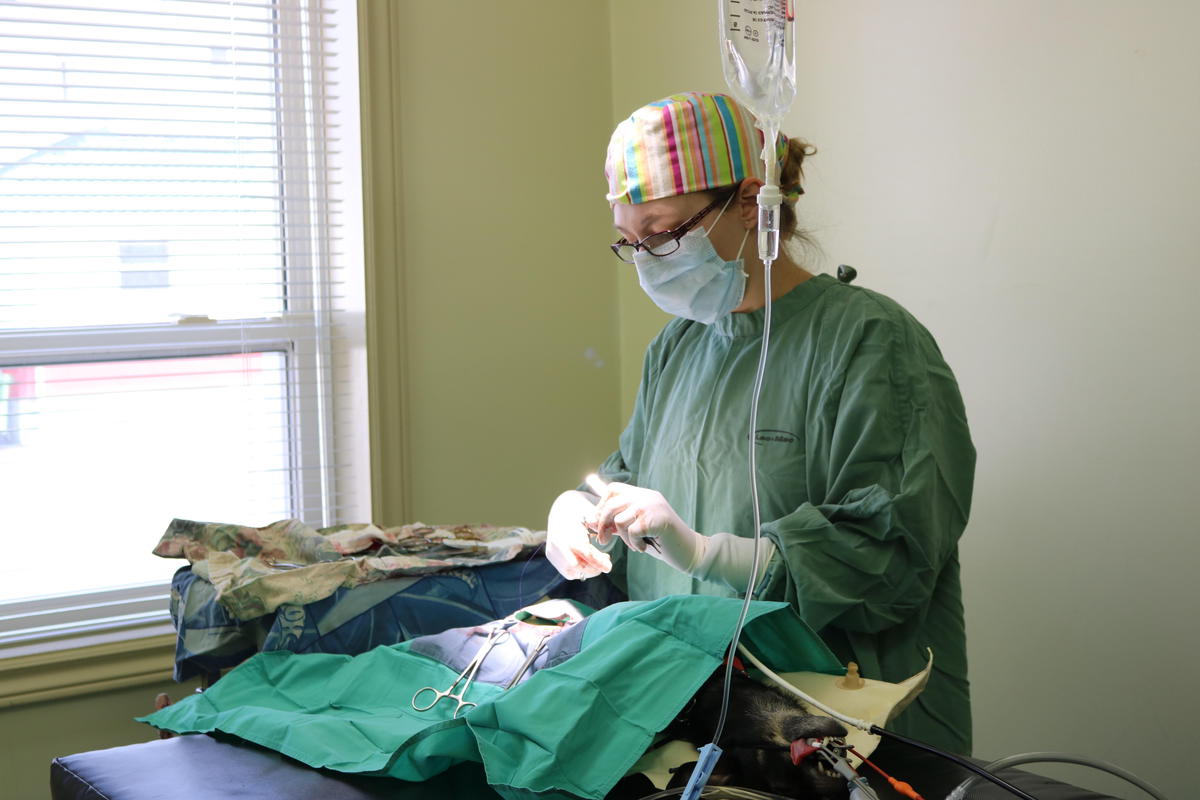 issues can wait until morning. Sometimes we get called in to the hospital several times within a few hours and get no sleep at all. A weekend on call shift usually involves numerous phone calls and several trips to the clinic to see emergencies. Most times daytime is busier than overnight, but not always. Hospitalized pets that need to be cared for and checked are also the on call team’s responsibility.
issues can wait until morning. Sometimes we get called in to the hospital several times within a few hours and get no sleep at all. A weekend on call shift usually involves numerous phone calls and several trips to the clinic to see emergencies. Most times daytime is busier than overnight, but not always. Hospitalized pets that need to be cared for and checked are also the on call team’s responsibility.
Staff members who are on call are often scheduled to work the following day, so if the night is busy with little sleep the next day can be particularly grueling. A busy on call weekend often leads into the next workweek with no break. It’s not hard to see why veterinary staff prefers these evenings and weekends to be fewer and farther between in order to help prevent burnout and compassion fatigue.
Have a look here for some insight into compassion fatigue in veterianry medicine.
Have a look here if you would like some insight into why the suicide rate amongst veterinarians is much higher than that of the general population.
Have a look here for info on burnout, compassion fatigue and depression in the veterinary profession.
It’s important to keep in mind that your friendly neighborhood veterinary staff all have regular lives. When we are not busy being vets, technicians, assistants and receptionists we are busy being moms and dads, spending time with and looking after our own pets, volunteering, caring for aged parents, hiking, biking, crafting, painting, coaching, you name it…
When we are on call we try to fit other things in as best we can but we always have a contingency plan – friends and family members to help pick up kids, be home to look after them and get them fed, feed the animals, and take the dogs out in case we can’t get home. We schedule family events and volunteer 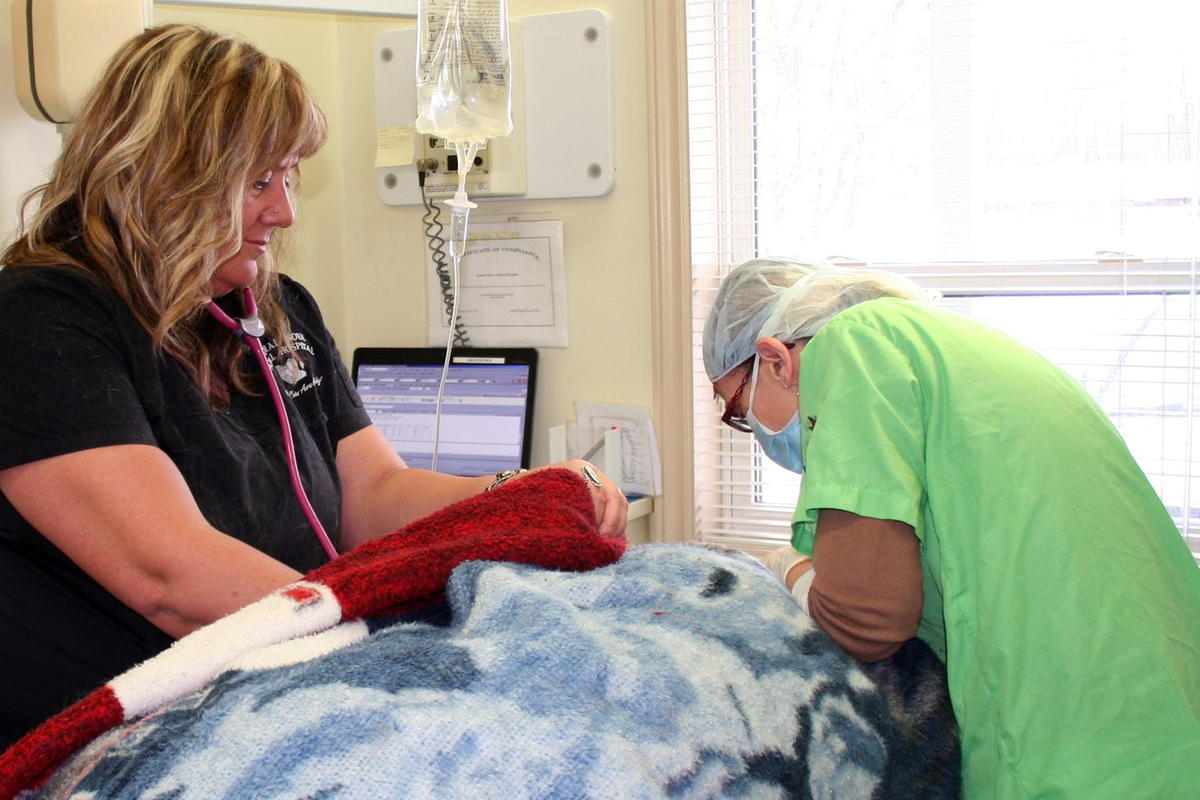 activities as best we can to avoid conflict with our on call responsibilities.
activities as best we can to avoid conflict with our on call responsibilities.
When we are not on call we do have an expectation of leaving work within a reasonable time frame – to be able to make supper for our family, watch or coach our kid’s game, take the dogs for a walk or ride the horse before it gets dark or attend our weekly painting class, workout class or hockey game. Mind you, it doesn’t always work out, we understand that, but as long as it does most of the time, that’s okay. It’s when we end up staying late more often than not and missing many important events that burnout and compassion fatigue occur.
Let’s have a look at the ‘grey zone’…
Most of the time things run smoothly and are pretty much ‘black and white’ – call your regular vet early in the day or when there is room in the schedule and your sick pet will be seen during regular hours that day; call after they have closed and you will get the answering service and be seen by the on call vet at the hospital they work at.
But there is a bit of a grey zone: this occurs on an evening or a Saturday morning. If you call your regular vet during these times because you need to bring your pet in right away your regular vet may refer you to the on call vet. This would happen if your regular vet is already fully booked for appointments or if your pet 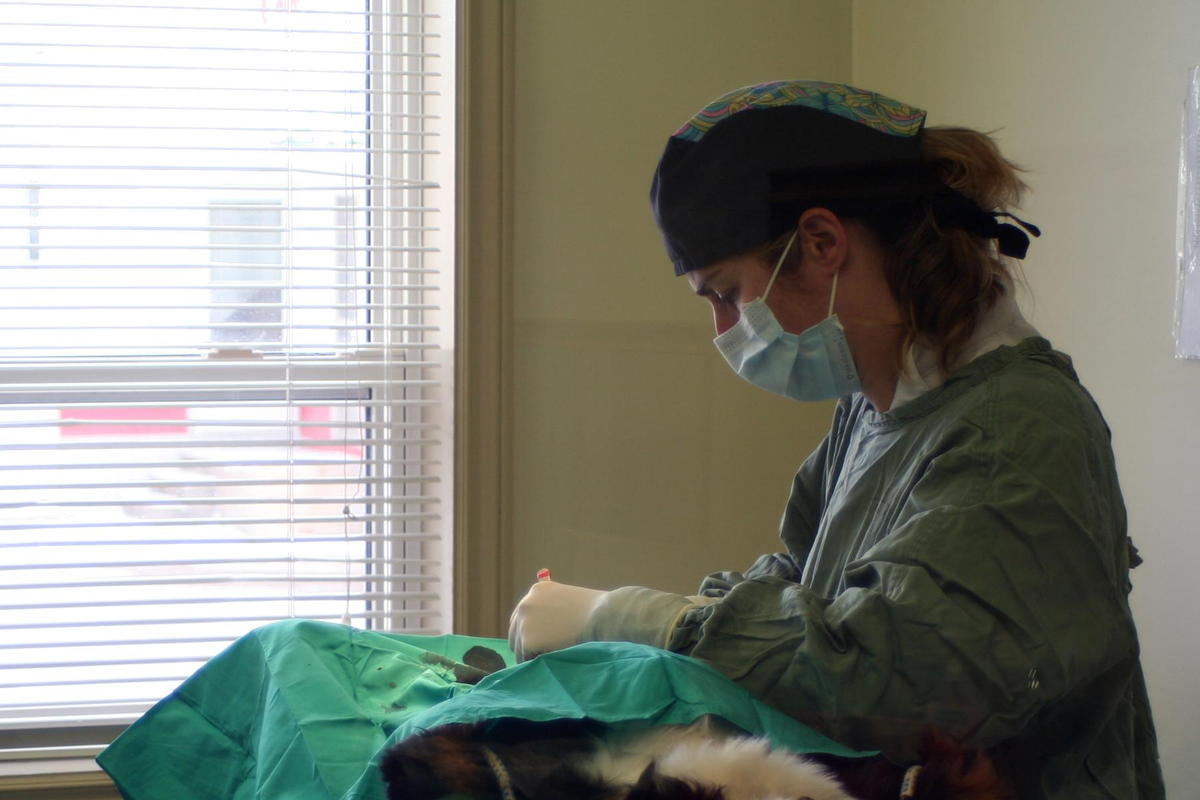 is sick enough that they might require extensive tests run, hospitalization or surgery. We understand that this might be upsetting and confusing to you – you are calling us because your pet needs care and we are open, so why would we send you to the on call clinic? There are a few factors at play in this scenario: quality of care for our patients, cost of care, and quality of life for the veterinary staff.
is sick enough that they might require extensive tests run, hospitalization or surgery. We understand that this might be upsetting and confusing to you – you are calling us because your pet needs care and we are open, so why would we send you to the on call clinic? There are a few factors at play in this scenario: quality of care for our patients, cost of care, and quality of life for the veterinary staff.
We all want the best quality of care for our pets and patients, but sometimes it is the on call clinic, not your regular vet, who is best able to give that quality of care. The on call clinic has staff that care for hospitalized patients over the weekend, perform surgical procedures after hours and stay late to run tests and interpret results. Your regular veterinary hospital would not be staffed in this manner if they were not on call. As earlier discussed, when those staff members are not on call they don’t have that contingency plan in place and often have commitments to their own family, friends and pets.
If your regular vet’s staff is rushing to get to other commitments they may not be the best ones to look after your pet at that time. The on call staff is able to take the time they need to be thorough and provide high quality care.
Cost comes into play because if your pet is examined at your regular vet first but needs extended care that only the on call clinic can provide and so you go to them second, you may end up paying for two exams. This is not an issue for everyone, but for some it can make a big difference.
We know that when your pet is sick it is upsetting and scary, and because of that you want your regular vet to stay late to see you ‘just this once’. And sometimes we do, but also be aware that for you it is ‘just this once’, but for us, when we multiply by the thousands of patients we have, it’s not just this once, it’s often, even every day.
If we don’t set limits and boundaries, if we don’t protect the mental health of our receptionists, technicians, assistants and veterinarians, if we can’t find a healthy work-life balance then we all suffer the consequences. Not only the veterinary staff, who end up burnt out, leaving the profession or struggling with mental health, but you as well, our clients and patients who deserve the best quality care that a happy and healthy veterinary staff can provide.
